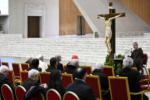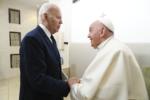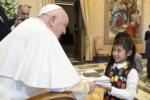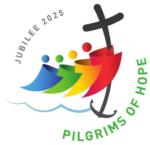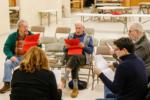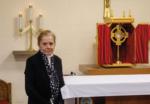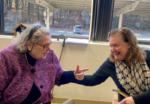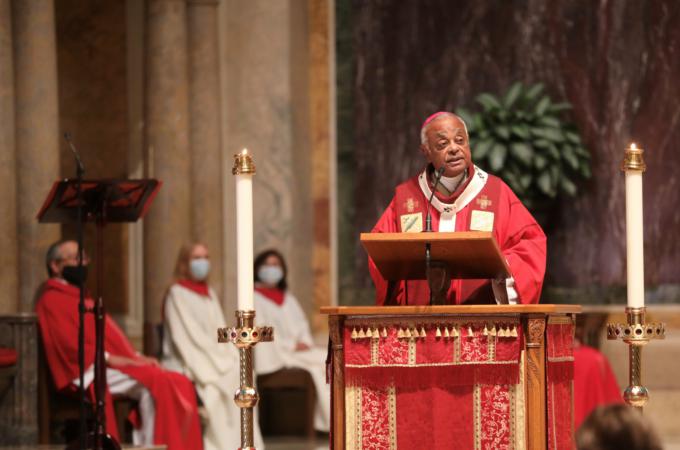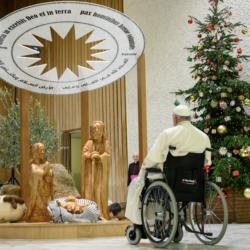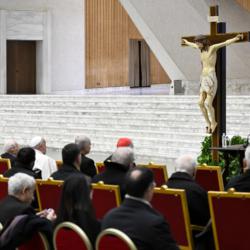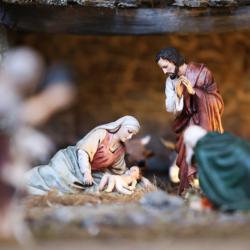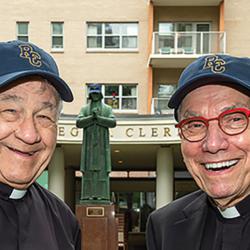New podcast series examines history of U.S. clergy sex abuse
WASHINGTON (CNS) -- A new podcast series, "Crisis," has debuted, which examines the clergy sexual abuse crisis in the U.S. church.
Produced by the Catholic Project at The Catholic University of America, Washington, its 10 episodes plan to recount the history of the crisis and church leaders' responses to it.
"Catholic University really found itself in a unique position to offer a response to the sexual abuse crisis," said Karna Lozoya, executive director of strategic communications in the president's office at the university, and narrator of "Crisis."
With its ties to a papally chartered university, "Crisis" examines the responses of popes, including Pope Francis and St. John Paul II. Because of its location in Washington, the archbishop of Washington serves as chancellor of the university and is a member of the board of trustees. The current archbishop is Archbishop Wilton D. Gregory.
A previous Washington archbishop and university chancellor, former Cardinal Theodore McCarrick, was himself accused of sexual misconduct dating back several decades; the allegation resulted in his forced laicization. McCarrick still maintains his innocence.
McCarrick's successor, Cardinal Donald W. Wuerl, retired as archbishop of Washington in late 2018 in the wake a Pennsylvania grand jury report on his mishandling of abusive priests in the early 1990s when he was bishop of Pittsburgh.
After spending six years in a similar communications position in the Archdiocese of Denver, Lozoya came to work at Catholic University in July 2018, two weeks before The New York Times broke the first story of McCarrick's abuses having occurred while he was still a priest and auxiliary bishop of the Archdiocese of New York and as a bishop and archbishop in New Jersey.
Lozoya said these revelations led to the formation of the Catholic Project at Catholic University. She described the Catholic Project as "a space where we seek to bring clergy and laity together to address to address some of the most difficult problems it the church." There, it was decided it would address the sexual abuse crisis as its first initiative.
"We felt like the laity needed a really in-depth exploration and analysis of the sexual abuse crisis. We get so much of our information about the crisis from news reports," Lozoya told Catholic News Service in a Sept. 10 phone interview, "but nobody seemed to have ... a synthesized version of all that went on in 2018 and context and analysis to process the revelations that we learned in 2018."
She added that in using the podcast format, "we thought this was a new and exciting way to tell the story of the sexual abuse crisis in a story form so that people could understand all of the contours of the crisis of the issue and the factors at play and an understanding of what this is, what happened, what do we need to do to correct it -- those kinds of questions."
There is also "an educational role that we play" with "Crisis," Lozoya said. "We see this podcast as a way to educate the laypeople on the sex abuse crisis without turning away from hard questions and hard facts and the realities of the sexual abuse crisis that the church continues to address and to face."
"We're a university and that's our role," she told CNS. "We try to be as honest and transparent and straightforward as possible. We can't know everything. It's not like we're opening up secret archives. We're not an investigative news podcast. But we are taking a look at the sexual abuse crisis."
Lozoya said the podcast has gotten "incredible support from bishops," particularly Archbishop Gregory and Cardinal Daniel N. DiNardo of Galveston-Houston, who was president of the U.S. bishops' conference when the McCarrick scandal broke in 2018 and said the conference would pursue the many questions surrounding McCarrick's conduct "to the full extent of its authority."
"They're happy we're doing this podcast, and they agree that the laity should pay attention to this issue. And know the reality of what the church has passed through, really, since the '50s. We've been dealing with the sexual abuse crisis through the '50s and we're trying to tell that entire story."
Even 10 episodes -- four are completed, four more are in production, and the final two have yet to be written -- "we should have an entire podcast dedicated to the role of news media in the sexual abuse crisis. They have really been a huge factor in bring so much of this to light," Lozoya said.
"Journalism is really the first draft of history. This podcast tries to begin that second draft of history, where we're building on all that information that the news media brought to light over the years."
"Crisis" can be heard at the Catholic Project's website, https://catholicproject.catholic.edu or on podcast services including Apple and iHeart.

